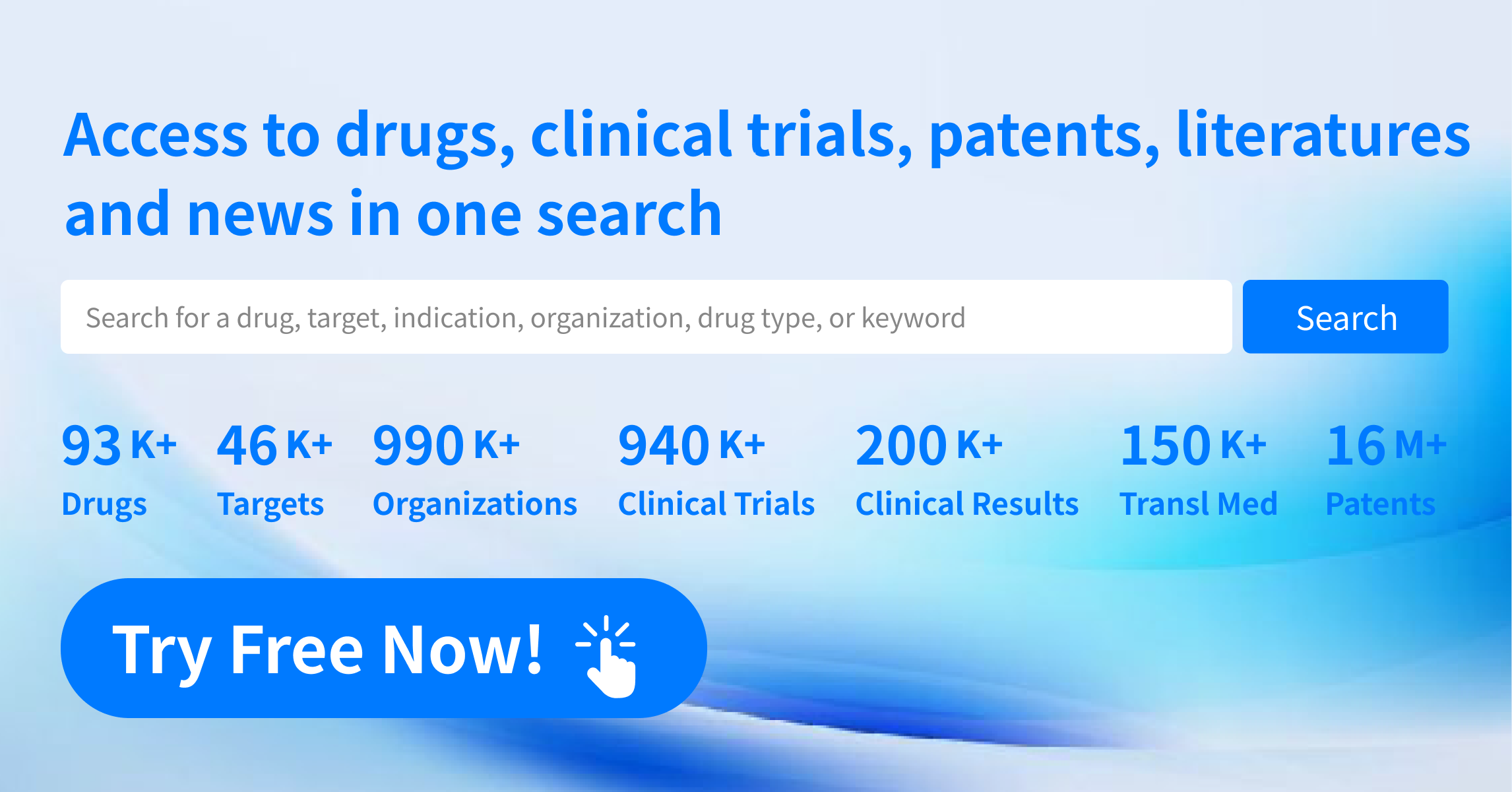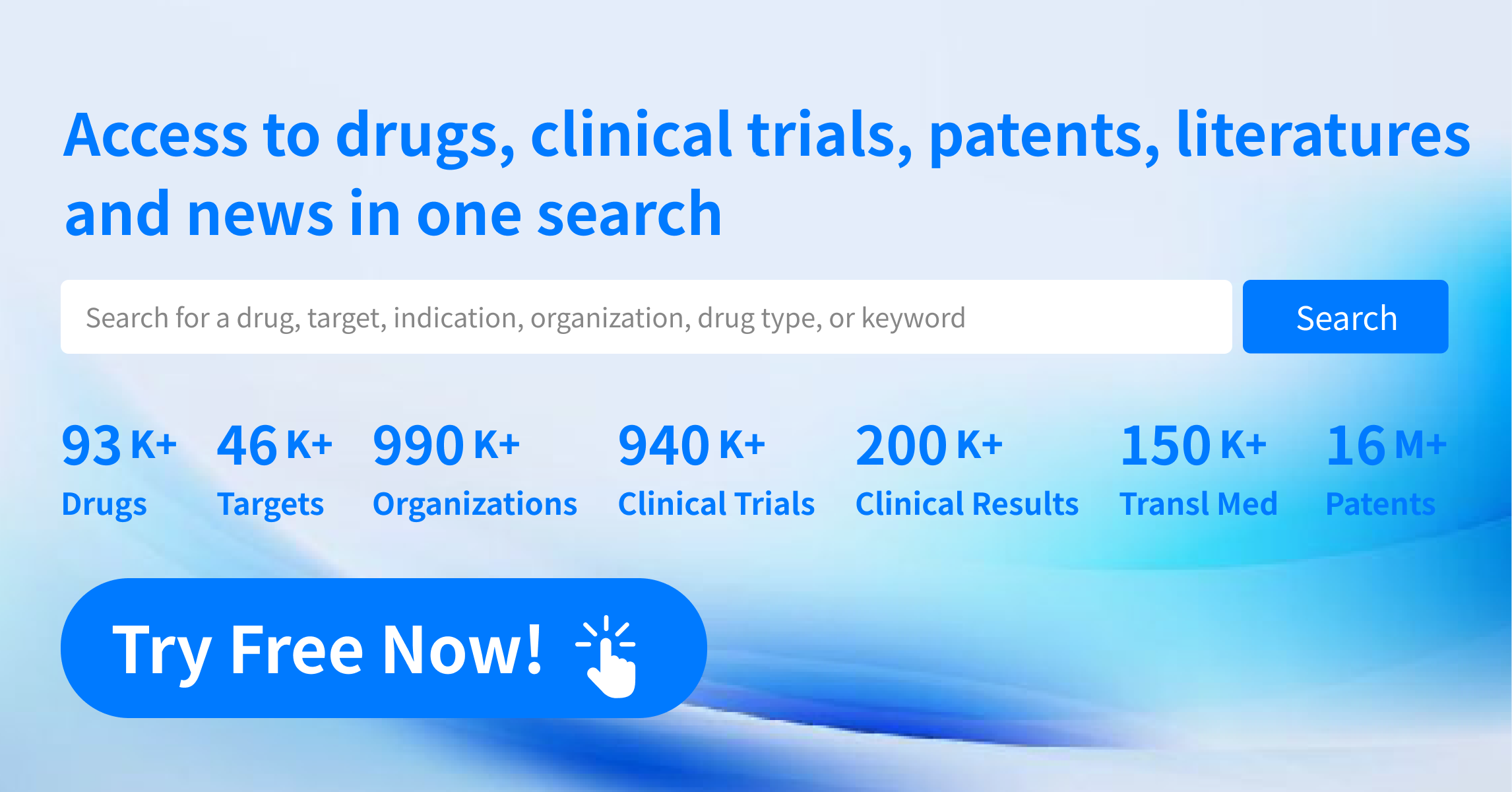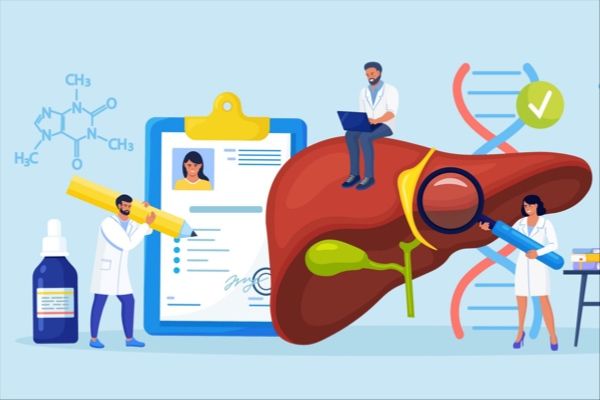Global New Drug Research and Development Progress Weekly Report (8.19-8.25)
Global Pharmaceutical Research and Development Progress
1.Astellas/Pfizer's Nectin-4 Targeted ADC Enfortumab Vedotin Approved in China
On August 19, the NMPA (National Medical Products Administration) website announced that the marketing application for Enfortumab Vedotin for Injection, a Nectin-4 targeted ADC submitted by Astellas, has been approved (JXSS2300022/3). This approval is for the treatment of patients with locally advanced or metastatic urothelial carcinoma who have previously received PD-1/PD-L1 inhibitors and platinum-based chemotherapy. Enfortumab Vedotin is the first Nectin-4 targeted ADC approved globally, and this approval marks it as the first Nectin-4 targeted ADC approved in China as well.
Nectin-4 is a protein located on the cell surface, highly expressed in bladder cancer. Enfortumab Vedotin is a first-in-class antibody-drug conjugate (ADC) that directly targets Nectin-4, jointly developed by Astellas and Seagen, a subsidiary of Pfizer. Non-clinical data show that Enfortumab Vedotin exerts its anti-cancer activity by binding to cells expressing Nectin-4 protein, internalizing the anti-tumor component monomethyl auristatin E (MMAE), and releasing it into the cell, leading to cell cycle arrest and programmed cell death (apoptosis). The drug has already been approved for the treatment of urothelial carcinoma in the United States, Japan, and the European Union.
2.Sanofi's CD3 Antibody Teplizumab Proposed for Priority Review
On August 20, the CDE (Center for Drug Evaluation) website indicated that Sanofi's teplizumab (PRV-031) is proposed for priority review. It is intended to delay the progression from stage 2 to stage 3 in adult and pediatric patients aged 8 years and older with type 1 diabetes. This product was approved by the FDA in November 2022. In October 2007, Eli Lilly entered into an agreement with MacroGenics to acquire the development and commercialization rights for teplizumab for a total transaction value of $641 million. However, Lilly terminated the collaboration three years later. In May 2018, Provention Bio acquired all rights to teplizumab from MacroGenics and positioned it as their core product, raising $56 million through an IPO. In October 2022, Sanofi entered into a collaboration with Provention Bio, gaining the U.S. commercialization rights for teplizumab. After teplizumab received FDA approval, Sanofi acquired Provention Bio for $2.9 billion, securing all rights to the product.
3.Blockbuster ADC Enhertu Receives Breakthrough Therapy Designation Again
On August 20, Daiichi Sankyo announced that Enhertu (trastuzumab deruxtecan), a blockbuster antibody-drug conjugate (ADC) jointly developed with AstraZeneca, has been granted Breakthrough Therapy Designation (BTD) by the U.S. FDA. This designation is for the treatment of hormone receptor (HR)-positive HER2-low (IHC 1+ or IHC 2+/ISH-) or HER2 ultra-low (defined as IHC 0 with membrane staining) unresectable or metastatic breast cancer patients who have received at least two lines of endocrine therapy for metastatic disease, or who progressed within six months of first-line endocrine therapy combined with a CDK4/6 inhibitor, or within 24 months of adjuvant endocrine therapy. Additionally, Daiichi Sankyo announced that the European Medicines Agency (EMA) has accepted a regulatory application for a new indication for Enhertu, which will be evaluated as a monotherapy for the treatment of unresectable or metastatic HER2-low or ultra-low expressing adult breast cancer patients who have received at least one line of endocrine therapy for metastatic disease.
4.Johnson & Johnson’s Rybrevant in Combination with Lazcluze Approved by FDA for First-Line Lung Cancer Treatment
On August 21, Johnson & Johnson announced that the U.S. FDA approved its bispecific antibody Rybrevant (amivantamab) in combination with the third-generation epidermal growth factor receptor (EGFR) tyrosine kinase inhibitor (TKI) oral medication Lazcluze (lazertinib) for the first-line treatment of adult patients with locally advanced or metastatic non-small cell lung cancer (NSCLC) harboring EGFR exon 19 deletions or exon 21 L858R substitution mutations, as confirmed by an FDA-approved test. Previous trial results demonstrated that the Rybrevant and Lazcluze combination therapy reduced the risk of disease progression or death by 30% compared to active control treatment. This FDA approval is primarily based on the positive results from the MARIPOSA Phase 3 clinical trial, which evaluated the efficacy and safety of the Rybrevant and Lazcluze combination therapy versus the active control TKI drug Tagrisso for first-line treatment of patients with locally advanced or metastatic NSCLC harboring EGFR exon 19 deletions or exon 21 L858R substitution mutations. The analysis revealed that the Rybrevant and Lazcluze combination therapy reduced the risk of disease progression or death by 30% compared to the active control treatment. The median progression-free survival (PFS) for patients in the combination therapy group was 23.7 months, compared to 16.6 months in the active control group. Additionally, the median duration of response (DOR) in the combination therapy group was 9 months longer than in the active control group (25.8 months vs. 16.7 months), which was a secondary endpoint of the study. The safety profile of the combination therapy was consistent with the known safety profiles of its individual components.
5.Eli Lilly Announces Long-Term Phase 3 Trial Results for Blockbuster Therapy Tirzepatide
On August 21, Eli Lilly and Company announced the positive top-line results from the three-year SURMOUNT-1 Phase 3 clinical trial of its blockbuster drug tirzepatide. The analysis demonstrated that once-weekly injections of tirzepatide significantly reduced the risk of progression to type 2 diabetes by 94% in adults with obesity or overweight and prediabetes. Additionally, tirzepatide sustained weight loss throughout the treatment period, with adults receiving the 15 mg dose achieving an average weight reduction of 22.9% by the end of the treatment period. SURMOUNT-1 is a multicenter, randomized, double-blind, placebo-controlled Phase 3 clinical trial designed to evaluate the efficacy and safety of tirzepatide at different doses (5 mg, 10 mg, and 15 mg) as an adjunct to a low-calorie diet. The recently announced analysis includes data from 1,032 adults with obesity or overweight and prediabetes, who were randomly assigned to receive either a placebo or different doses of tirzepatide over a 176-week treatment period, followed by a 17-week off-treatment period (a total of 193 weeks). The analysis of the key secondary endpoint showed that tirzepatide significantly reduced the risk of progression to type 2 diabetes from baseline to week 176 in adults with obesity or overweight and prediabetes (p<0.0001). The combined data from all doses of tirzepatide demonstrated a 94% reduction in the risk of progression to type 2 diabetes compared to placebo.
6.GSK’s Innovative Anti-Cancer ADC Receives FDA Breakthrough Therapy Designation
GSK recently announced that the U.S. FDA has granted Breakthrough Therapy Designation to GSK5764227 (GSK’227), a B7-H3-targeted antibody-drug conjugate (ADC). This therapy is currently being evaluated for the treatment of relapsed or refractory extensive-stage small cell lung cancer (ES-SCLC) that has progressed during or after platinum-based chemotherapy. ES-SCLC is a highly aggressive and difficult-to-treat cancer with limited treatment options, and the 5-year survival rate is approximately 3%. The majority of ES-SCLC patients experience a relapse after initial treatment, and the median overall survival for standard treatment of relapsed ES-SCLC is currently 5-6 months. The Breakthrough Therapy Designation was supported by data from the ARTEMIS-001 Phase 1 open-label, multi-center clinical trial. The trial involved over 200 patients and assessed the safety, tolerability, and preliminary anti-tumor activity of GSK5764227 in patients with locally advanced or metastatic solid tumors, including relapsed or refractory ES-SCLC. The trial results are expected to be presented at the World Conference on Lung Cancer (WCLC) in September this year. GSK plans to initiate a global Phase 1/2 trial in the second half of 2024 to support the registrational study of GSK5764227.
7.Ractigen Therapeutics’ RNA-Based Drug RAG-18 Receives FDA Orphan Drug and Pediatric Rare Disease Designations
On August 22, Ractigen Therapeutics announced that its small activating RNA (saRNA) drug, RAG-18, has received Orphan Drug Designation (ODD) from the U.S. FDA. Ractigen noted that this latest designation, following the FDA's Rare Pediatric Disease Designation (RPDD) for RAG-18 last month, further establishes the drug’s potential as an innovative therapy for Duchenne muscular dystrophy (DMD) and Becker muscular dystrophy (BMD). Regardless of the type of DMD gene mutation, RAG-18 may offer a promising therapeutic strategy. RAG-18 is a first-in-class, dual-strand saRNA drug that specifically targets and activates the expression of the UTRN gene in muscle cells through the RNA activation (RNAa) mechanism. The utrophin protein encoded by the UTRN gene is similar in structure and function to dystrophin, and its upregulation can functionally compensate for the missing dystrophin in DMD muscle cells, providing a potential treatment for all types of DMD and BMD patients. Preclinical studies have shown that using Ractigen’s proprietary small nucleic acid delivery system, LiCOTM, and administered via subcutaneous injection, RAG-18 can significantly reduce muscle damage in DMD model mice, demonstrating its potential in treating DMD patients. In July of this year, RAG-18 was granted Rare Pediatric Disease Designation by the U.S. FDA.
8.Eisai and Biogen's Alzheimer's Therapy Leqembi Receives Another Approval
On August 23, Eisai and Biogen announced that their jointly developed Alzheimer's therapy, Leqembi (lecanemab), has been granted marketing authorization by the UK Medicines and Healthcare Products Regulatory Agency (MHRA) for the treatment of mild cognitive impairment (MCI) and mild dementia in adults caused by Alzheimer's disease (AD), whether or not they carry an APOE E4 allele. According to the press release, the UK is the first country in Europe to approve Leqembi, making it the first approved therapy in the UK that targets the underlying cause of AD. This approval is primarily based on data from the global, placebo-controlled, double-blind, parallel-group, randomized Phase 3 clinical trial Clarity AD. Leqembi treatment met the primary endpoint (change from baseline in the overall cognitive and functional scale, Clinical Dementia Rating-Sum of Boxes [CDR-SB], at 18 months) and all key secondary endpoints with statistical significance. In November 2022, the Clarity AD study results were presented at the Clinical Trials on Alzheimer's Disease (CTAD) conference and published in the medical journal The New England Journal of Medicine. Leqembi specifically binds to soluble oligomers of beta-amyloid.
9.Johnson & Johnson's Breakthrough Small Molecule Therapy Balversa Approved by the EU
On August 24, Johnson & Johnson announced that the European Commission (EC) has approved its small molecule inhibitor, Balversa (erdafitinib), as a once-daily oral monotherapy for the treatment of adult patients with unresectable or metastatic urothelial carcinoma (mUC) who have fibroblast growth factor receptor 3 (FGFR3) genetic alterations and have previously received at least one line of PD-1/PD-L1 inhibitor therapy. According to the press release, this is the first pan-FGFR kinase inhibitor approved in the EU for the treatment of mUC patients with FGFR3 alterations. The approval is primarily based on the positive results from the Phase 3 clinical trial THOR. This trial was a randomized, open-label, multicenter study involving mUC patients with specific FGFR genetic alterations who experienced disease progression during or after first-line or second-line treatment. The THOR trial results showed that when used as a second-line treatment, Balversa improved overall survival and reduced the risk of death by 36% compared to chemotherapy in patients who had previously received PD-1 or PD-L1 inhibitor therapy. The median survival for patients treated with Balversa was 4 months longer than for those treated with chemotherapy (HR: 0.64; 95% CI: 0.47–0.88; P=0.0050).
10.Moderna’s mRNA Vaccine mRNA-1345 Receives Another EU Approval
On August 24, Moderna announced that the European Commission (EC) has approved its respiratory syncytial virus (RSV) mRNA vaccine, mRESVIA (mRNA-1345), for the prevention of lower respiratory tract disease (RSV-LRTD) caused by RSV in adults aged 60 and older. Moderna has already submitted marketing authorization applications for mRNA-1345 to multiple regulatory authorities worldwide. The approval of mRESVIA is based primarily on positive data from the Phase 3 clinical trial ConquerRSV, a global study conducted across 22 countries or regions, with approximately 37,000 adults aged 60 and older enrolled. The key trial achieved both primary efficacy endpoints, with preliminary analysis at a median follow-up of 3.7 months showing a vaccine efficacy of 83.7% (95.88% CI: 66.0-92.2) against RSV-LRTD defined by two or more symptoms, and a vaccine efficacy of 82.4% (96.36% CI: 34.8-95.3) against RSV-LRTD defined by three or more symptoms.
For more information on the progress of drug development, please follow the Synapse database.
Dynamics of Global Pharmaceutical Trade Cooperation
1.Eli Lilly's New Research Center, Lilly Seaport Innovation Center, Officially Launched
Recently, Eli Lilly and Company officially launched a new research center in Boston—the Lilly Seaport Innovation Center. The company's gene therapy team is based at this center, which is a primary focus of the facility. While Lilly's diabetes and weight loss therapies have garnered significant attention in recent years, Dr. Dan Skovronsky, Lilly's Chief Scientific Officer, pointed out that genetic medicine now accounts for nearly one-third of Lilly's R&D pipeline. Among the most notable pipelines is the RNAi therapy, lepodisiran. Clinical trial results published last year demonstrated that a single injection of lepodisiran could reduce lipoprotein (a)—Lp(a) levels to undetectable levels for nearly a year. Lilly plans to initiate a trial expected to enroll 12,000 patients to evaluate whether this therapy can reduce the risk of heart attacks and strokes by inhibiting the production of Lp(a). Gene therapy is increasingly becoming a key focus area in Lilly's R&D efforts.
2.Merck Acquires Bispecific ADC for $37.5 Million
On August 20, Kelun-Biotech announced that it had received written notification from Merck stating that Merck would exercise its exclusive option for the innovative bispecific ADC project, SKB571, and pay Kelun-Biotech $37.5 million. Additionally, Merck will make further milestone payments to Kelun-Biotech upon achieving specific development and sales milestones. Kelun-Biotech will retain the rights to develop, use, manufacture, and commercialize SKB571 across mainland China, Hong Kong, and Macau. SKB571 is an innovative bispecific ADC targeting multiple solid tumors, including lung cancer and gastrointestinal tumors. Through the scientific selection of target combinations and differentiated bispecific molecular design, the product aims to enhance tumor targeting and overcome tumor heterogeneity, thereby improving efficacy. The use of a highly hydrophilic toxin-linker strategy has demonstrated favorable pharmacokinetic properties. Preclinical studies have shown that SKB571 exhibits good antitumor efficacy and safety across various patient-derived xenograft (PDX) models and in cynomolgus monkeys. The product is expected to submit an IND application soon. Kelun-Biotech's Trop2 ADC currently has 10 global Phase 3 clinical trials underway, covering multiple tumor types. Following Trop2 ADC, Kelun-Biotech is actively advancing a variety of next-generation ADC technologies, as well as broader conjugate drug technologies, and is expanding into non-oncology areas such as autoimmune diseases.
3.Multitude Therapeutics' ADC Cancer Therapy Secures Licensing Collaboration
On August 20, Multitude Therapeutics and Adcendo jointly announced a licensing agreement for a novel, highly differentiated antibody-drug conjugate (ADC) targeting tissue factor (Anti-TF), designated as ADCE-T02. Under the agreement, Adcendo will obtain exclusive global development and commercialization rights outside the Greater China region, while Multitude Therapeutics will retain the development and commercialization rights within Greater China. Tissue factor (TF) is overexpressed in various cancers such as bladder cancer, non-small cell lung cancer, colorectal cancer, cervical cancer, esophageal cancer, head and neck cancer, and gastrointestinal cancer, while its expression in normal tissues is limited, making it an excellent ADC target. ADCE-T02 is a novel, highly differentiated TF-targeting ADC, with a unique antibody design that minimizes the impact on the coagulation pathway. Additionally, the T1000-exatecan linker-payload technology platform has been shown to amplify the "bystander effect," enhance linker stability, and has the potential to overcome resistance mechanisms. These differentiated characteristics are expected to translate into higher clinical response rates, longer duration of efficacy, and better safety, offering a superior therapeutic window. ADCE-T02 has been submitted for clinical trials in Australia and is expected to submit a U.S. IND application soon. According to the agreement terms, Multitude Therapeutics will receive an upfront payment in the tens of millions of dollars and milestone payments totaling over $1 billion upon achieving subsequent development, regulatory, and commercial milestones.
4.ImmuneOnco Receives Upfront Payment for Licensing and Collaboration Agreement with Instil Bio for IMM2510 and IMM27M
On August 22, ImmuneOnco announced that it had received a $10 million upfront payment for the licensing and collaboration agreement reached with Instil Bio on August 1, 2024, regarding IMM2510 and IMM27M. Earlier in August, ImmuneOnco and Instil Bio signed the licensing and collaboration agreement, under which Instil's wholly-owned subsidiary (SynBioTx) will obtain global development and commercialization rights for IMM2510 and IMM27M outside the Greater China region, while ImmuneOnco will retain the rights for development and commercialization in Greater China (including Taiwan, Macau, and Hong Kong). ImmuneOnco is set to receive up to $50 million in upfront and near-term payments and may collect milestone payments exceeding $2 billion upon achieving certain development, regulatory, and commercial milestones, along with single-digit to low double-digit percentage royalties on net sales globally (excluding the Greater China region).
5.Emerging RNA Therapy Company Borealis Enters Strategic Collaboration with Novartis
On August 23, Borealis Biosciences announced that it had secured $150 million in Series A financing from founding investor Versant Ventures and Novartis. The company has also entered into a strategic research collaboration with Novartis to co-develop RNA therapies for the treatment of kidney diseases. Despite recent progress in the treatment of IgA nephropathy, many other forms of prevalent kidney diseases still have significant unmet medical needs. In recent years, the scientific community has gained a better understanding of patient subgroups and underlying pathological mechanisms in kidney diseases, but some potentially effective pathogenic targets have been found unsuitable for modulation by traditional small molecules or biologics. Borealis aims to drive scientific and translational breakthroughs by developing RNA therapies to meet the critical unmet needs of kidney disease patients. The company's objectives include better understanding patient stratification, identifying genetically defined therapeutic targets, delivering therapeutic payloads to specific kidney cell types, and advancing RNA chemistry.
Borealis was built on the success of Chinook Therapeutics, a kidney disease company founded by Versant in 2019, which was acquired by Novartis last year for up to $3.5 billion. The core of Borealis' research includes the scientific and academic team from Chinook, along with other experts in the field of RNA therapeutics. Novartis participated in Borealis' Series A financing and committed up to $100 million in upfront and near-term research funding. This collaboration aligns with Novartis' strategic priorities in kidney medicine and xRNA technology platform innovation. As part of the agreement, Novartis will have the option to acquire two future potential development programs from Borealis, while Borealis will be eligible to receive up to $750 million in payments upon achieving clinical and regulatory milestones.





